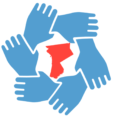Labor day (the baby version, not the holiday) is coming! Whether you’re weeks away or due any minute, packing your hospital bag ahead of time can save you stress when it’s GO TIME.
A well-packed hospital bag means you’ll have everything you need for labor, delivery, and postpartum recovery without overpacking like you’re moving in.
Let’s dive into what to pack, what to leave behind, and how to customize your bag based on your needs and birth plan.
When Should You Pack Your Hospital Bag?
Experts recommend having your hospital bag packed by week 36-37. Some babies are eager to make an early debut, and you don’t want to be scrambling while in labor.
Pro Tip: Keep your packed bag by the door or in the car, so you’re ready to go at a moment’s notice.
What to Pack in Your Hospital Bag
Here’s a comprehensive checklist with real-life reasons why each item is essential.
Essentials for Mom (Labor, Delivery & Recovery)
✔Your ID & Insurance Card
- Why? Hospitals require registration & insurance verification before admission.
Birth Plan (Optional)
- Why? If you have preferences for pain relief, delivery positions, or newborn care, a birth plan helps communicate that to your team.
Comfy Robe & Pajamas
- Why? Hospital gowns aren’t exactly high fashion (or comfortable!). A soft robe and loose pajamas make you feel more at home.
✔Slippers & Flip-Flops
- Why? Hospital floors are cold, and flip-flops are great for the shower.
Nursing Bra & Breast Pads
- Why? Whether breastfeeding or not, your milk will come in, and breast pads help with leaks.
Maternity Underwear or Disposable Undies
- Why? The hospital provides mesh underwear, but many moms prefer their own. Look for high-waisted, soft fabric undies.
Maxi Pads or Adult Diapers
- Why? Postpartum bleeding (lochia) lasts weeks. The hospital provides pads, but adult diapers (like Depends) can be more secure & comfortable.
Socks (Preferably With Grip!)
- Why? Feet get cold, and grip socks prevent slipping while walking around.
Lip Balm & Lotion
- Why? Hospital air dries out your skin fast!
Hair Ties or Headband
- Why? Labor gets sweaty—keeping your hair off your face helps!
Snacks & Drinks
- Why? Hospital food may be delayed or unappetizing. Easy-to-eat snacks like granola bars, crackers, and nuts help keep energy up.
✔ Phone Charger (Extra Long!)
- Why? Hospital outlets are far away, and you’ll need your phone for updates, photos, and entertainment.
Toiletries (Toothbrush, Deodorant, Face Wipes, Dry Shampoo, etc.)
- Why? Feeling fresh after labor makes a big difference.
Glasses or Contacts (If Needed)
- Why? You won’t want to fumble for vision essentials in the middle of the night.
Going-Home Outfit (Loose & Comfy!)
- Why? After delivery, your belly won’t shrink instantly—choose maternity leggings, a loose dress, or sweatpants for comfort.
Baby’s Essentials
Car Seat (Already Installed!)
- Why? Hospitals won’t let you leave without a car seat. Install it before labor to avoid last-minute stress!
Newborn Outfit (2-3 Choices)
- Why? Babies can arrive bigger or smaller than expected—bring a newborn and a 0-3M outfit.
Soft Swaddle Blanket
- Why? Hospitals provide basic blankets, but a soft swaddle keeps baby cozy & secure.
Hats & Mittens
- Why? Newborns lose heat quickly, and mittens prevent face scratching.
Diapers & Wipes (Optional)
- Why? The hospital provides them, but some parents prefer their own brand.
Pacifier (Optional)
- Why? Some hospitals won’t provide one, so bring one if you plan to use it.
Partner’s Essentials
Comfy Clothes & Hoodie
- Why? Hospital rooms get cold, and labor can take hours—or days.
Pillow & Blanket
- Why? Hospital pillows are flat, and partners get stuck on uncomfortable couches.
Snacks & Drinks
- Why? The cafeteria isn’t always open, and partners get hungry too!
Headphones & Entertainment
- Why? Labor has downtime, and Netflix, music, or audiobooks help pass the time.
Toiletries & Medications
- Why? If labor is long, they’ll need essentials too!
What NOT to Pack in Your Hospital Bag
Jewelry & Valuables – You won’t wear them, and losing them would be a nightmare.
Pre-Pregnancy Clothes – Your belly won’t shrink overnight. Bring maternity-friendly options.
Lots of Baby Clothes – Baby lives in a onesie and swaddle for most of their stay.
Diaper Bag – The hospital provides newborn essentials! Save the diaper bag for later outings.
Pro Tip: Keep one bag for mom and one for baby to stay organized.
Pros & Cons of Packing Early
| Pros | Cons |
|---|---|
| Less stress when labor starts | Might overpack if you prepare too early |
| Helps partners & support people be prepared | You may need to add last-minute items |
| Ensures you have everything essential | Space in hospital rooms is limited |
Reality Check: You won’t need half of what you think you do! Stick to the essentials.
Final Tips for Packing the Perfect Hospital Bag
Pack early (week 36-37) to avoid last-minute scrambling.
Divide items into bags (Mom, Baby, Partner) to stay organized.
Double-check hospital policies—some hospitals provide more than others.
Keep your bag in an easy-to-reach place—by the door or in the car.
Want a printable checklist?
Bibliography & Trusted Sources
- Mayo Clinic. (n.d.). What to Pack in Your Hospital Bag. Retrieved from https://www.mayoclinic.org
- American College of Obstetricians and Gynecologists (ACOG). (n.d.). Preparing for Labor & Delivery. Retrieved from https://www.acog.org
- The Bump. (n.d.). Hospital Bag Checklist. Retrieved from https://www.thebump.com
Congratulations—you’re ready! Now all that’s left is waiting for baby!
BIRTH PREPARATION CLASSES & BAG PLANNING SUPPORT
1. Westchester Medical Center – Family & Infant Education
- Location: Valhalla, NY
- Services: Hospital tours, childbirth classes, hospital bag checklists provided during prep classes
- Phone: (914) 493-7000
- Website: www.westchestermedicalcenter.org
2. White Plains Hospital – Center for Maternal & Child Health
- Location: White Plains, NY
- Services: Labor prep classes, what to pack for delivery guidance, maternity unit overview
- Phone: (914) 681-0600
- Website: www.wphospital.org
3. NewYork-Presbyterian Hudson Valley Hospital – Prenatal Education Program
- Location: Cortlandt Manor, NY
- Services: Classes on preparing for labor, hospital bag essentials, postpartum recovery tips
- Phone: (914) 737-9000
- Website: www.nyp.org/hudson-valley
COMMUNITY HEALTH & MATERIAL SUPPORT PROGRAMS
4. Open Door Family Medical Center – Family Support Services
- Locations: Ossining, Sleepy Hollow, Mount Kisco, Port Chester, Brewster
- Services: Prenatal education, help with packing essentials for birth, WIC and baby supply referrals
- Phone: (914) 941-1263
- Website: www.opendoormedical.org
5. Westchester County WIC Program (Women, Infants, and Children)
- Location: White Plains, NY
- Services: Prenatal nutrition, baby formula, breastfeeding supplies, information on packing for delivery
- Phone: (914) 813-5000
- Website: health.westchestergov.com/wic
6. Putnam County Department of Health – Maternal & Infant Health Program
- Location: Brewster, NY
- Services: Guidance on birth prep, what to bring to the hospital, community nurse consultations
- Phone: (845) 808-1390
- Website: www.putnamcountyny.com/health
NONPROFITS & SUPPORT FOR LOW-INCOME FAMILIES
7. United Way’s 211 Hudson Valley Helpline
- Coverage: Westchester and Putnam Counties
- Services: Referrals for baby supply banks, free maternity kits, support groups for new parents
- Phone: 2-1-1 or 1-800-899-1479
- Website: www.hudson211.org
8. Baby Bank – Westchester County Diaper & Baby Supply Bank (via Family Services of Westchester)
- Location: White Plains, NY
- Services: Baby clothes, newborn care kits, diapers, postpartum supplies
- Phone: (914) 937-2320
- Website: www.fsw.org
9. Birth from The Earth – Doula Services & Supply Preparation Guidance
- Location: Westchester County
- Services: Labor support, guidance on what to pack, culturally sensitive comfort planning
- Email: [email protected]
- Website: www.birthfromtheearth.com
Legal Disclaimer: The information provided by our nonprofit is for informational purposes only and not a substitute for professional medical advice, diagnosis, or treatment. Always consult a qualified healthcare provider for medical concerns. We make no guarantees about the accuracy or completeness of the information and are not liable for any decisions made based on it. If you have a medical emergency, call 911 or seek immediate medical care.


